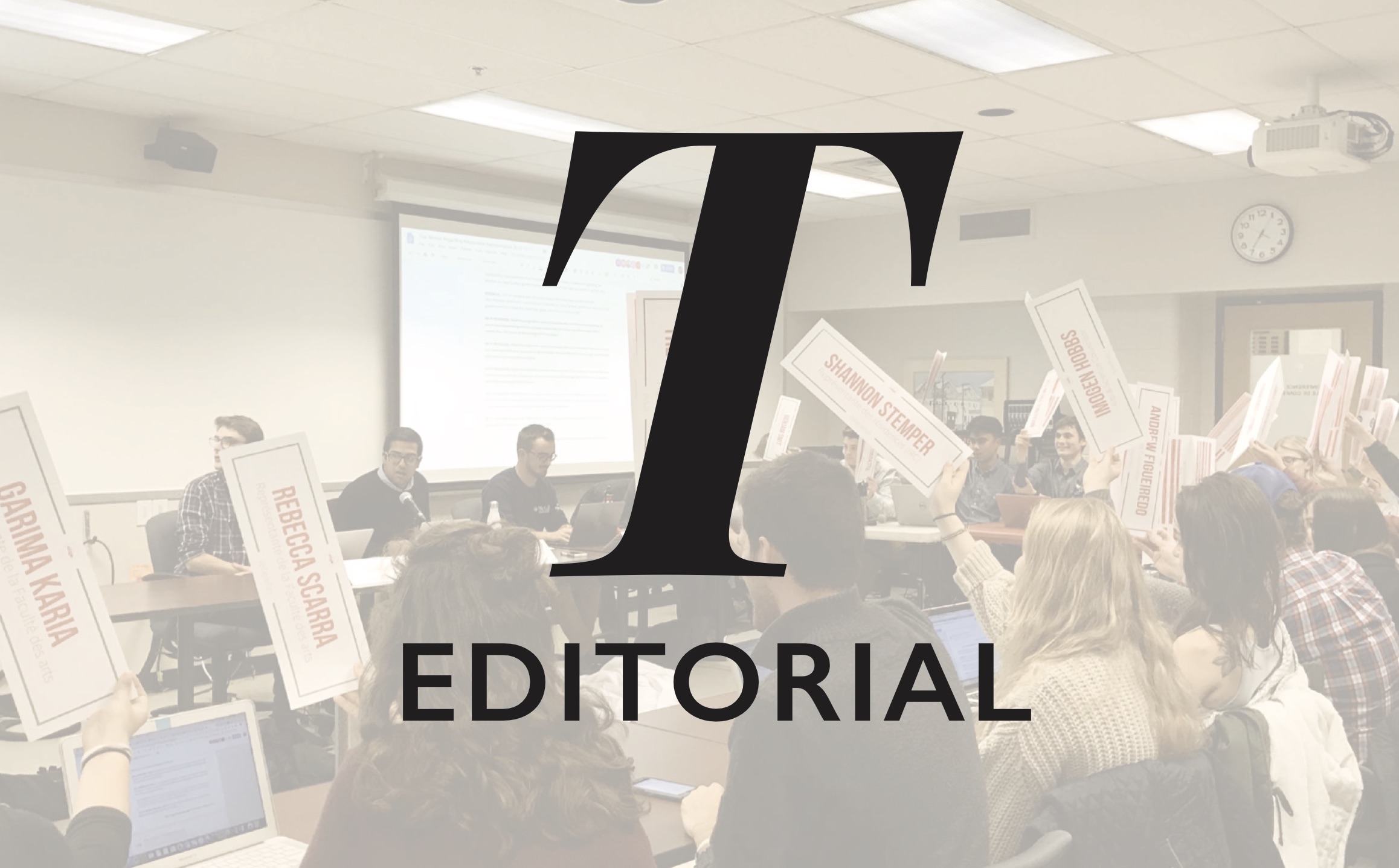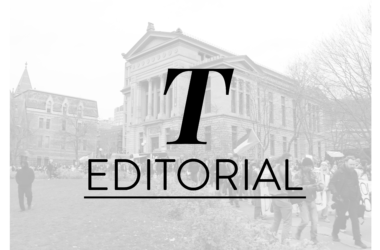In an ambiguous and poorly-worded email sent on Feb. 12, Arts Undergraduate Society (AUS) executives released a statement announcing that they had overturned the AUS Legislative Council’s decision to withhold approval of the course fee for POLI 339. POLI 339 Comparative Developed: Topics 1 is a two-week summer exchange course at the Hebrew University of Jerusalem, and at the Jan. 30 AUS Legislative Council meeting, members raised that the course was inaccessible for Palestinian students. Councillors ultimately voted not to approve the course fee, however, Executive Council quashed this decision using an emergency bylaw. Overturning the Legislative Council decision exceeded the executive’s mandate, and AUS executives should respect the democratic process and rescind their vote.
AUS executives and Arts Representatives to the Students’ Society of McGill University (SSMU) overturned a democratic vote with insufficient reason. While they claimed that the second vote was justified because a course syllabus and itinerary were missing, opposition to the class was rooted in the Palestinian-Israeli conflict—other specifics are irrelevant and would not have changed the vote’s outcome. It appears that the executives used an emergency provision to overturn a democratic vote for political reasons, which, in a group of elected representatives, demonstrates a lack of transparency in their governance.
Under Quebec law, all courses that charge ancillary fees must have these fees approved by the university’s student society, and SSMU delegates the approval of Faculty of Arts course fees to the AUS. In response to the AUS Legislative Council voting not to pass the fee, two days later, the Executive Council held a meeting over Facebook Messenger on Feb. 8 to decide the course fee’s fate themselves. After three rounds of voting—with varying results—the first vote, which overturned the Legislative Council decision, was ultimately made official. They then waited four days to announce their decision to AUS members.
In a statement posted to the AUS Facebook page on Feb. 14, AUS Secretary General Sophie Zhao and Deputy Secretary-General Nathan Mendel announced that they had suspended the Executive Council’s decision to approve the course fee in order to conduct an investigation of the decision and its constitutionality.
The Secretary General’s statement adds another layer to the pandemonium. In addition to poor governance, AUS is becoming an increasingly hostile environment: Arts Representative Andrew Figueiredo and AUS President Maria Thomas admitted to ‘pressuring’ other executives into voting a certain way, and AUS members have called on Figueiredo to resign. Vice-President (VP) Internal Billy Kawasaki has announced his resignation because of the controversy.
Councillors have expressed concerns about harassment based on political beliefs and identities. As a proposed solution to harassment and to create a safe space, councillors moved to ban the recording of AUS Legislative Council meetings: Campus media can be granted exemptions on a per-meeting basis, subject to a two-thirds majority vote by Council. Although this motion may have good intentions, it will only result in a loss of transparency in AUS. Instead, AUS should be developing ways to fully address their representatives’ poor behaviour. If they truly want to protect councillors and gallery members at meetings, AUS must properly condemn and prevent harassment instead of blaming a scapegoat, like recording. Executives, representatives, and even constituents have to receive adequate disciplinary action.
According to the AUS constitution, all Executive Committee decisions must be ratified at the next Legislative Council meeting. However, their decision on POLI 339 was not submitted to Legislative Council for ratification, but instead forwarded directly to SSMU’s executives. Despite this undemocratic and opaque process, SSMU ratified the executive’s decision and sent it to the Deputy Provost Student Life and Learning (DPSLL) office. SSMU should have withheld their approval instead of blindly green-lighting an unrepresentative decision.
The issue extends far beyond the course’s funding, and reflect mismanagement and secrecy on the part of AUS. Conducting emergency meetings over Facebook Messenger is unacceptable. Students representatives and executives should reconsider their right to the position if their ability to fulfill their mandate and serve their constituents is compromised. Instead of blaming harassment on recording, AUS must develop better ways to protect members of Council and their constituents. SSMU has an opportunity to overturn the AUS Executive’s decision, as the DPSLL office has offered to rescind their approval should SSMU do so as well. SSMU and the AUS executives should respect the initial Legislative Council vote against the course fee.
Errata: A previous version of this article incorrectly stated that AUS president Maria Thomas was asked to resign. The Tribune regrets this error.





